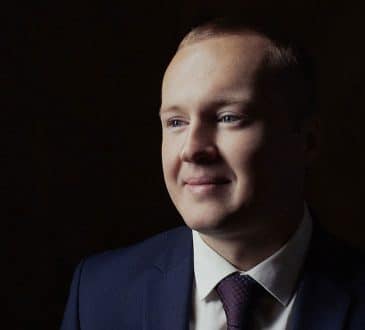How to Find Your Voice in the Digital Age

In the weeks since the coronavirus pandemic has required much of the working population to stay at home, use of teleconferencing has soared. With in-person meetings no longer feasible for the foreseeable future, organizations are using the platforms available via the digital age to try to keep operations up and running. But with every interview, proposal, pitch or staff update coming through a speaker, what’s the best way to make your voice heard and to make these virtual interactions successful?
If you haven’t yet perfected your on-camera dynamism, it’s time to step it up. Otherwise, that video call is going to be a problem if you’re reluctant to speak up. Or, if you intend to present on YouTube, you’ll have to overcome the performance anxiety that makes you look nervous and stilted on camera.
Speaking confidently on camera in the digital age requires that you’re prepared and that your content is polished, but also that your delivery is relaxed. The art to this paradox is to find a way to be as you are, while at your best. This means unlocking the confidence already within you.
Try these tactics to find your voice for communicating digitally:
1. Develop your mind-body-voice connection. In an age where we live mostly in our heads at work, we overlook the way in which the body feeds the voice. You can get out of your head by diverting your attention to the body’s breath — which fuels your voice, and posture — which helps engage the whole body. This will up the energy when you speak, helping you to become less of a talking head. Before you join your teleconference or hit record, find your upright posture. When you put some backbone into it, literally, you fully connect to the body, your voice opens up and you project that confidant voice that will exudes power.
2. Commit to be heard. Confident, expressive voices benefit from some boldness in their delivery. It helps to understand how to project your voice with a relaxed, open resonance that easily fills a room. Yet it can be daunting cutting into an online conversation, even when you know you have something worth saying. To be heard, you must commit. Think about driving. If you’re tentative, no one will make way for you. If you nose out into the traffic confidently and respectfully, people will make way. Find your merge-in moment, and commit with confidence.
3. Use your friend system. Think of the parasympathetic nervous system (PNS) in the brain as your “friend” system. It allows you to relax and connect with others. When you know how to access this system when you speak, you’ll have that lovely conversational ease that you have when talking to a close friend. You’re able to respond rather than react to what happens. By contrast, if, when you’re called upon to speak or it’s your time in the spotlight, your “foe” system starts to activate in your brain (the sympathetic nervous system that activates the fight-flight-freeze response), you’ll speed up, your voice will flatten and you’ll feel nervous. Work to switch the foe to the friend system. You have to tell yourself to reappraise the situation and know that your life isn’t under threat. By taking your mind to your friend system, you can find your calm, clear-thinking self even under pressure.
4. Power-up by singing. If you want to grow your voice and confidence in just a few minutes a day, it’s simple. Sing. When you sing, your voice naturally expresses yourself fully. To bridge from singing into speaking, say the words you’ve just sung. Feel the easy power that your voice has when you speak. Notice how your energy has lifted, and with it your voice. Think of the energy of singing and bring that energy (but not the tune!) to your speech. The next time you need to speak with confidence, sing early on in the day — or just before if you have space and privacy — and notice how your voice sounds more resonant and more confident.
5. Take a digital break before your meeting. The next time you have five minutes before an important meeting or presentation, instead of filling it with busy-ness (checking email, making a to-do list, looking at social media, listening to voicemail, etc.) you stopped and did nothing? Although it looks like nothing on the outside, inside, your system is slowing down. Stage a mini intervention on yourself and know that all the busy-ness is counter-productive to being calm, connected and truly centered in your meeting. Those five minutes of slowing down might make all the difference to your success in the meeting.
Voice is the expression of aliveness. Stepping out of your comfort zone may need a little boldness at first, especially in these times of virtual communication. But when you take that step, you’re on your way to finding your voice and your confidence.
Written by Caroline Goyder. Have you read? Antigua and Barbuda Citizenship by Investment Program (CIP), St. Lucia CIP: Saint Lucia Citizenship By Investment Program, Vanuatu CIP: Vanuatu Citizenship By Investment Program, Montenegro Citizenship By Investment Program (CIP)
Bring the best of the CEOWORLD magazine's global journalism to audiences in the United States and around the world. - Add CEOWORLD magazine to your Google News feed.
Follow CEOWORLD magazine headlines on: Google News, LinkedIn, Twitter, and Facebook.
Copyright 2025 The CEOWORLD magazine. All rights reserved. This material (and any extract from it) must not be copied, redistributed or placed on any website, without CEOWORLD magazine' prior written consent. For media queries, please contact: info@ceoworld.biz









